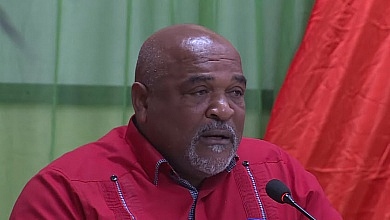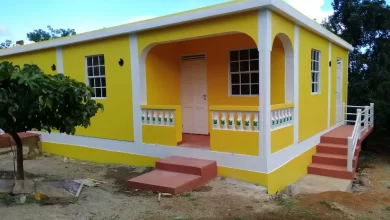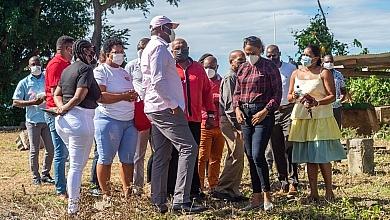Homes, Votes, and Silence: Who Gets a Home in Dominica?

As the government prepares to hand over 21 brand-new climate-resilient homes in Scotts Head, there’s no denying the visual impact of Dominica’s Housing Revolution Programme. Gleaming structures where dilapidated ones once stood. Smiles replacing years of struggle. It’s a powerful image. But beneath the celebration lies a quieter question few dare to ask publicly: who exactly decides who benefits, and how?
What “Engaging the People” Really Means
Permanent Secretary in the Ministry of Housing and Urban Development, Lucien Blackmoore, stated in the official release, “We have been engaging the people of the community in the process of identifying the beneficiaries…” That line, while well-meaning, is doing a lot of heavy lifting.
Was this engagement casual or formal? Were residents consulted in structured forums, with records kept of who attended and what was said? Was there a formal application process or points-based system? Were the consultations inclusive of different age groups, economic classes, and political affiliations?
The document offers no answers. For a project of this scale, publicly funded, nationally celebrated, and highly visible, vague assurances fall short of the transparency required in democratic governance.
In a Small Country, Whispers Travel Fast
These aren’t hypothetical concerns. In a country as tightly knit as Dominica, where everyone knows who’s who, the distribution of state-built homes is rarely seen as neutral. Residents of Scotts Head know who supported which political party. When a home is handed over, it’s not just a key exchange, it’s a signal.
And when someone who didn’t get selected knows they’ve been living in a structurally unsound home for years, while someone else with visible ties to the ruling party moves into a new unit, resentment builds. Whispers of favoritism and political reward are hard to contain, especially when the state doesn’t provide public lists, oversight mechanisms, or written selection criteria.
A Pattern Beyond Scotts Head
This isn’t isolated to one village. From Castle Bruce to Paix Bouche, housing handovers have become a regular feature of government press releases, and, in some cases, social media debates. They tend to follow a similar pattern: dramatic before-and-after photos, carefully worded praise for community engagement, and the presence of senior government figures at ribbon-cutting ceremonies.
But the public rarely hears what happened between the ground-breaking and the handover. Who applied? Who didn’t? Who got denied? On what grounds? Who was consulted, and who was left out?
Without answers to these questions, the handover becomes less a celebration of social investment and more a display of political capital.
Housing or Political Currency?
It’s difficult to ignore the political symbolism embedded in these projects. When officials speak of “transforming lives” through housing, the language often implies a gift rather than a right. Yet housing is a fundamental need, particularly in a hurricane-prone island where vulnerable structures endanger life.
If the state positions itself as a benefactor rather than a facilitator, it risks distorting the public understanding of civic entitlements. Citizens may begin to feel that receiving housing depends not on their level of need, but on who they know, how they vote, or how quiet they’ve stayed. This dynamic creates dependency, not empowerment, and that’s a dangerous foundation for any housing strategy.
What Real Transparency Looks Like
True transparency requires more than a well-worded quote. It demands:
- A public framework showing how beneficiaries are selected;
- A clear appeals process for those who feel unfairly excluded;
- Participation from neutral third parties, including civil society or religious leaders;
- And the publication of anonymized data on applications, rejections, and approvals.
Engagement, if it’s going to mean anything, must be open to scrutiny. Residents should know not only who helped select the beneficiaries, but also whether those selectors had a stake in the outcome. A handover without process is just politics dressed in concrete.
Public Housing, Private Frustrations
Many of the frustrations with the housing programme go unspoken. People don’t want to criticize a system that could one day benefit them. But silence doesn’t equal satisfaction. It often conceals fear: fear of political retaliation, fear of being overlooked in future allocations, fear of losing the little support one may already have.
When transparency is lacking, trust fractures. Neighbours begin to view each other with suspicion. The community fabric frays, not because homes were given out, but because the process wasn’t visible, inclusive, or defensible.
Strengthening Accountability Before It’s Too Late
The Housing Revolution is, in many ways, an ambitious and admirable programme. It addresses a genuine need, creates jobs, and provides dignity to those long forgotten by the private housing market. But that doesn’t make it immune to critique. In fact, its very success demands higher standards.
It’s time for the government to move from benevolence to accountability. To show the public that good governance isn’t about charity, it’s about rights, systems, and fairness.
If community members are truly being engaged in selecting who receives housing, then the government should have nothing to hide. Release the criteria. Publish the numbers. Empower communities to participate in ways that don’t just tick a box but define the process.
A Final Word: Who Really Decides?
Dominicans are hopeful, patient, and politically astute. They don’t expect miracles, but they do expect fairness. And when fairness becomes opaque, people begin to wonder: is this programme truly for everyone, or just those on the right list?
The Housing Revolution can’t just be measured in walls and windows. It must also be measured in trust, transparency, and truth. If the government is serious about equity, it must prove it, not in the next speech or the next photo op, but in the systems it builds to deliver for all.
Because in the end, the question that lingers, quiet but persistent, is the one still unanswered: Who really decides who gets a house?
This article is copyright © 2025 DOM767








